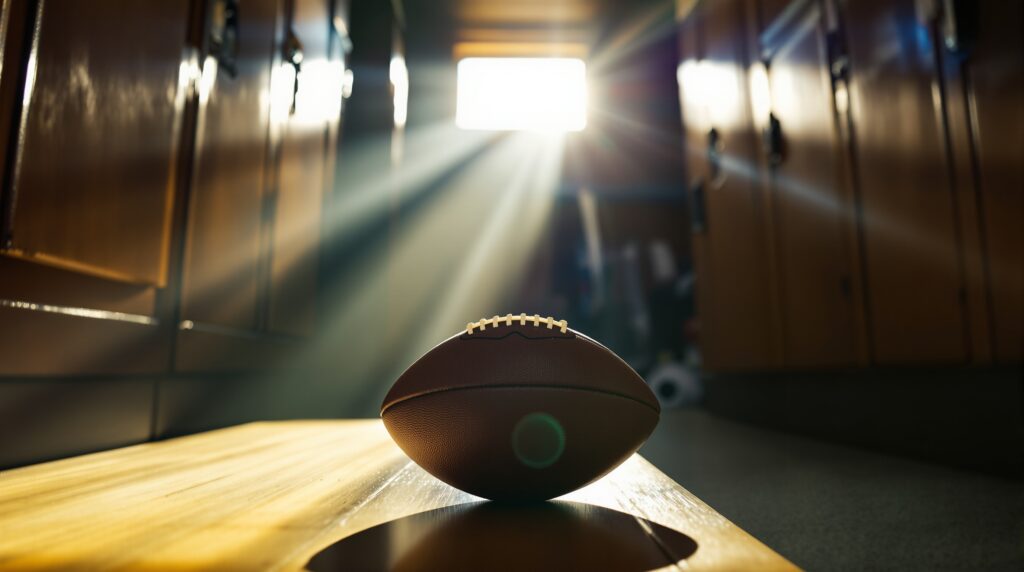Major Takeaways
Concussions, hidden injuries, and chronic pain in football mirror common men’s health risks often ignored until too late.
Mental health stigma in sports reflects broader male struggles with seeking help and support.
Football’s teamwork, discipline, and visibility can inspire better preventive care and healthier lifestyles for men.
Locker Room Lessons: Men’s Health From the Gridiron
When football season kicks off, men across the country settle into their couches or pack into stadiums to watch the battles on the gridiron. The sport is physical, gritty, and unapologetically tough — much like the way many men approach their health. But the truth is this: football isn’t just about touchdowns and trophies. It’s a mirror reflecting the state of men’s health the good, the bad, and the downright dangerous. The same culture of toughness that fuels football glory also drives men to ignore warning signs, skip checkups, and downplay pain until it’s too late.
From concussions to chronic pain, from locker room camaraderie to post-career depression, football offers lessons that extend far beyond the game. Whether you’re a weekend warrior, a die-hard fan, or just someone trying to get healthier, the field has something to teach you.
Head Hits and Hidden Damage
One of the biggest health concerns in football and men’s health in general is the brain. Concussions have dominated headlines, but research shows it’s not just the big knockout hits that matter. Sub-concussive blows, the kind linemen and linebackers take dozens of times in a game, add up. Studies using advanced mouthguard sensors show hundreds of head acceleration events in a single season, even for youth athletes.
Now, most men aren’t strapping on pads every Sunday, but the lesson is clear: ignoring small, repetitive injuries adds up. That bad knee you never rehabbed? That constant back pain you chalk up to “getting older”? Left untreated, small hits to your body and brain become long-term problems.
Playing Through Pain The Toughness Trap
Football has a long-standing culture of “playing hurt.” Players are celebrated for grinding through sprains, bruises, even broken bones. It makes for great highlight reels, but it also feeds the dangerous mindset men adopt in everyday life: toughness means silence.
Statistics show men are far less likely than women to visit a doctor for preventive care. They delay checkups, downplay symptoms, and often only show up at the ER when things have gone south. Sound familiar? The same mentality that keeps a player in the game with a bad ankle also keeps men out of the clinic until it’s a crisis.
But here’s the truth: real strength is prevention. Getting your blood pressure checked, screening for diabetes, or talking openly about depression isn’t weakness — it’s a smarter game plan.
The Mental Health Blind Spot
If concussions are the visible wound of football, mental health is the invisible one. Studies have shown that more than half of professional footballers report experiencing symptoms like anxiety, depression, or distress during their careers. The stigma of admitting vulnerability is heavy, and the locker room mantra of “man up” only makes it worse.
The same pattern exists off the field. Men die by suicide at nearly four times the rate of women in the United States. Yet, men are also less likely to seek mental health treatment. Football culture mirrors this societal blind spot: vulnerability is punished, silence is rewarded.
It’s time to flip that script. When top athletes like Brandon Marshall or Dak Prescott speak openly about their struggles, it sends a message: strength includes asking for help.
The Fitness and Teamwork Advantage
Of course, football also offers some positive blueprints for men’s health. The physical training cardio, strength, discipline highlights the benefits of regular exercise. Even casual sports or structured workouts can reduce risks of heart disease, obesity, and high blood pressure, which remain leading causes of death for men.
But beyond the body, football provides a powerful lesson in community. The locker room bonds, the sense of brotherhood, the accountability of a team all of these improve mental well-being. Men outside of sports often lose those connections as they get older, making isolation a silent health risk. Finding a team, whether it’s through rec leagues, barbershop conversations, church groups, or even fantasy football chats, can provide the same boost.
Post-Career Pain: The Long Game
When the lights go down and the cheering fades, many retired football players face chronic pain, arthritis, sleep issues, and depression. The transition from athlete to ex-athlete is brutal. That same reality plays out for everyday men after a lifetime of ignoring their health: the long game is lost if the body breaks down too soon.
The message is simple don’t just think about the next game or the next season. Think long-term. Men need to prioritize sustainable habits: stretching, recovery, regular checkups, and nutrition that fuels rather than depletes.
Turning the Game Around
So, what can men take away from the gridiron?
Don’t ignore the little hits. That nagging pain or recurring symptom needs attention before it turns into something permanent.
Redefine toughness. Taking care of your body and mind is strength, not weakness.
Find your team. Build a support network, whether it’s friends, family, or peers, that holds you accountable for your health.
Play the long game. Invest in your health now so you’re not sidelined later.
Final Whistle
Football season is more than entertainment it’s a case study in how men treat their health. The sport’s highs and lows reflect a culture that celebrates toughness but often neglects wellness. If men can learn from the lessons on the field, they can turn the game around off it.
Because when the season’s over and the stadium lights fade, the real win isn’t on the scoreboard it’s in living longer, healthier, and stronger.



















